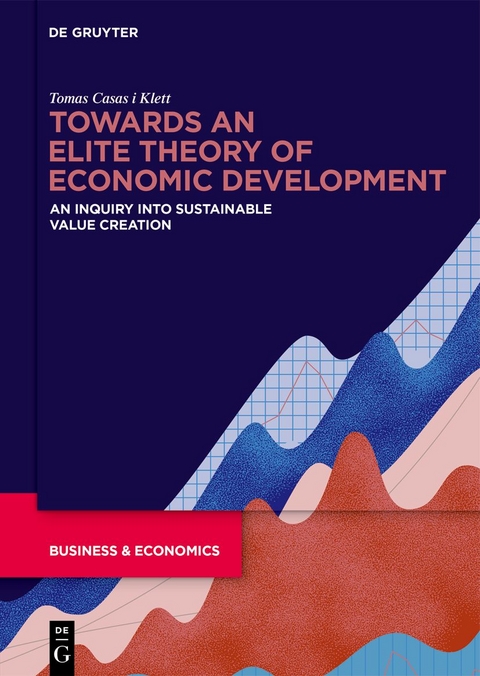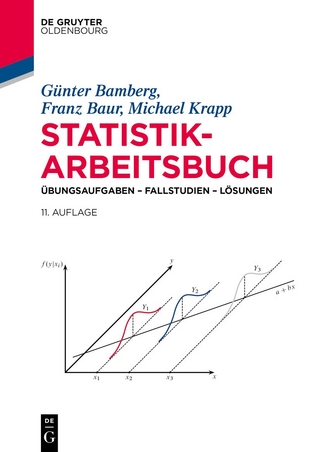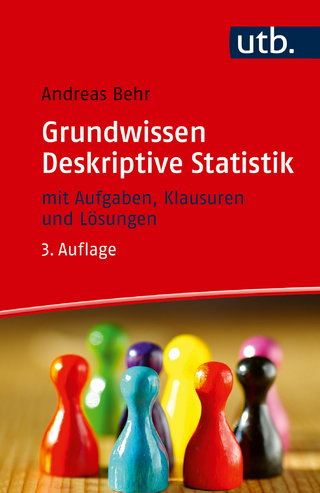
Towards an Elite Theory of Economic Development
De Gruyter (Verlag)
978-3-11-073890-2 (ISBN)
- Noch nicht erschienen (ca. April 2025)
- Versandkostenfrei innerhalb Deutschlands
- Auch auf Rechnung
- Verfügbarkeit in der Filiale vor Ort prüfen
- Artikel merken
lt;p>Tomas Casas is Assistant Professor at the University of St. Gallen's Research Institute for International Management (FIM-HSG), Director of the China Competence Center (CCC) and Director of the Competence Center of Top Teams (CCTT). He is visiting professor and member of the Academic Council and advisor to the Dean at the Moscow School of Management SKOLKOVO. He is also visiting Professor at Shanghai's Jiaotong University (Antai) and Fudan University (FDSM). His research interests include free-trade agreements (FTAs), entrepreneurship and digitalization, top performance teams, the Belt and Road Initiative (BRI), behavioral economics, narrative economics, cross-cultural management and Asia innovation models.
Tomas was a "Salaryman" in a Japanese kaisha in Tokyo for 3 years, and an entrepreneur in China for 15 years. He has developed a variety of high-impact courses drawing from praxis, specializing in executive education. His approach revolves around strategic transformation with value deliverable to participants and their organizations. He was a member of the World Economic Forum's Global Future Councils (2016-2018) and is a WEF Expert Network member.
His first published book was on Japan's challenges and potential titled "Japan's Open Future: An Agenda for Global Citizenship" (co-authored with J.P. Lehmann and J. Haffner). His latest work is an edited book titled "The Life of Russian Business: (Re)cognizing, (Re)activating and (Re)configuring Institutions."
Tomas holds a BSc from the Wharton School, University of Pennsylvania, USA, a MSc from Fudan University, China and a PhD in Economics from the University of St. Gallen, Switzerland.
Preliminary note: The process and purpose of a conceptual approach
Part 1. Towards a Logic of Elites
1.1 In populism and in denial, two elite fallacies
1.2 Multi-disciplinary literature review for a definition of elites
1.3 The logic of elite agency (i): fundamentals
1.4 The logic of elite agency (ii): theoretical perspectives
1.5 The logic of elite agency (iii): behavioral perspectives
Part 2. Towards an Elite Theory of Economic Development
2.1 Elites in political economy theory
2.2 Elites and institutions, which comes first?
2.3 Power in elite contests
2.4 Value creation business models: production, exchange and innovation
2.5 Value extraction business models: transfers
2.6 Elite business models: aggregate at the meso-level and impact on macro-level performance
Part 3. Towards an Elite Quality Measurement of the Political Economy
3.1 Is there a measurement gap?
3.2 Operationalization of elite quality, a four-level architecture
3.3 Interpretation through rankings, frameworks and narratives (macro-level)
3.4 Shaping intra-elite contests
3.5 Further research
3.6 Selected limitations for the 'elite quality index'
Closing note: Latifundia perdidere Germaniam and how not to lose the future
Bibliography
| Erscheinungsdatum | 10.05.2022 |
|---|---|
| Zusatzinfo | 61 b/w ill., 42 b/w tbl. |
| Verlagsort | Berlin/Boston |
| Sprache | englisch |
| Maße | 170 x 240 mm |
| Themenwelt | Wirtschaft ► Volkswirtschaftslehre ► Ökonometrie |
| Wirtschaft ► Volkswirtschaftslehre ► Wirtschaftspolitik | |
| Schlagworte | Economic Development • Eliten • elite quality • Elites • global ranking • Nachhaltigkeit • Political Economy • Politische Ökonomie • Power • Ranking • sustainability • Value Creation • wirtschaftliche Entwicklung |
| ISBN-10 | 3-11-073890-2 / 3110738902 |
| ISBN-13 | 978-3-11-073890-2 / 9783110738902 |
| Zustand | Neuware |
| Haben Sie eine Frage zum Produkt? |
aus dem Bereich


